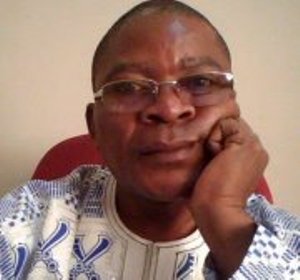Within a month, the Nigerian labour movement lost two very important leaders, indeed key figures who had worked unstintingly to shape the Nigeria Labour Congress after the 1978 merger of four labour centres on 28 february 1978 in Ibadan, the Oyo State capital.
Comrade Jonathan Ihonde, former Vice President of NLC during the leadership of its second President, Comrade Ali Ciroma died on th e 12th day of March 2024 at the University of Benin Teaching Hospital, Benin City aged 82 while Comrade Ali Ciroma followed on the 12th day of April 2024 at the University of Maiduguri Teaching Hospital at the age of 91. These are two key figures, among others who fought military dictatorship, especially the General Ibrahim Babangida junta when the government decided to serve the interests and caprices of neo liberal institions as represented by the International Monetary Fund and the International Bank for Reconstruction and Development otherwise known as The World Bank, the two twin sisters of the Bretton Wood institutions formed basically in 1944 after the second world war to rebuild battered economies of European countries by unleashing severe economic warfare on countries of the global south whose human and material resources were and are still being pillaged to build global north.
Both leaders mobilized allies of the labour movement – students, the intelligentsia, peasants, and indeed the poor against the imposition of policies rammed down the hollow throats of the military government, which has today left the Nigerian economy, people and society deeply impoverished as foreseen by these leaders and their allies.
Under both leaders, NLC issued several bulletins to alert the populace about the abyss the country and her peoples are being railroaded into by neo liberal policies, especially the Structural Adjustment Programme, SAP, driven by the Breton Wood blood suckers.
Comrade Ihonde, a clear-headed analyst of the Marxist extraction never hid his deep repulsion of any policy that would tamper with human development in the direction of quality livelihood. He was a conscious mobiliser of human and material resources for popular struggles throughout his adult life without creed, ethnic biases or nationality. An exemplary internationalist to the core. An organizational man.
As a playwright, he was one of the pioneers of standard theatre in Nigeria with his epoch television drama, Hotel De Jordan which aired through the defunct Midwest Television from 1973, later known as Nigeria Television after the Federal Government of Nigeria took over all television stations.
Hotel De Jordan was a depiction of the class contradictions and counter cultures that are part of the attributes of capitalism and Comrade Ihonde used his intellect and high ideological commitment and depth in the polemics of Marxism and revolutionary focus to galvanize public sentiments against capitalism through drama in such a way that even the uneducated got exposed to the ills and negative characteristics of a social system deliberately designed to destroy people and society.
His commitment to social change was never been in doubt. His disdain for anti-workers policies and actions were very obvious in all his actions and relationships such that he never committed what people call class suicide despite his closeness to people in power. Even as government appointed Chairman of the Edo State Council for Arts and Culture, he never allowed the decimation of his union, the Radio, Television and Theatre Workers Union, RATTAWU. He, in fact sometime in 1993 helped to stop the pilfering of cement from Bendel Cement Company, Okpella by some state government officials when the defunct National Union of Chemical and Non Metallic Products Employees, Bendel Area Council contacted him to talk to the state government because payment of wages and allowances were affected such larceny.
Principled, deeply ideological; he never compromised his ideological commitment even when as a national officer of his union, RATTAWU stood in opposite direction during the era of the politics of Progressives and Democrats that polarized trade unions in Nigeria, influenced by the global “cold war” between the Eastern bloc and the Western bloc as represented by the defunct Union of Soviet Socialist Republic and the United States. He vehemently disagreed with his union when some unions were encouraged, obviously by the General Ibrahim Babangida military junta to scuttle the 1988 National Delegates Conference of the NLC, which held in Benin City.
He was one of those who initiated and ensure the participation of the National Association of Nigerian Students and the Academic Staff Union of Universities in protests and strikes called by the NLC under the leadership of late Comrade Ali Chiroma. This deep alliance produced well informed documents against the IMF induced anti people policies especially privatization of public enterprises, commercialization of education and public service reforms clearly aimed at throwing workers and critical academicians out of jobs.
That leadership, which had people like Comrade Ihonde took a deliberate decision to employ former students activists as staff of the secretariat of NLC. This did not only improved the work of NLC and its affiliates but strengthened mobilization of the Nigerian people for mass actions.
Throughout the pro-democracy struggles against military dictatorship, he took active part in mobilization, tactical and strategic planning meetings which made Edo State a centre of very successful mass protests.
Comrade Jonathan Ihonde was not just a playwright but a trusted organizer for quality change that will make the world a better place for humanity. He should be celebrated as a hero of our collective struggles as the struggle continues.
May his productive soul rest well in eternal peace and power.




